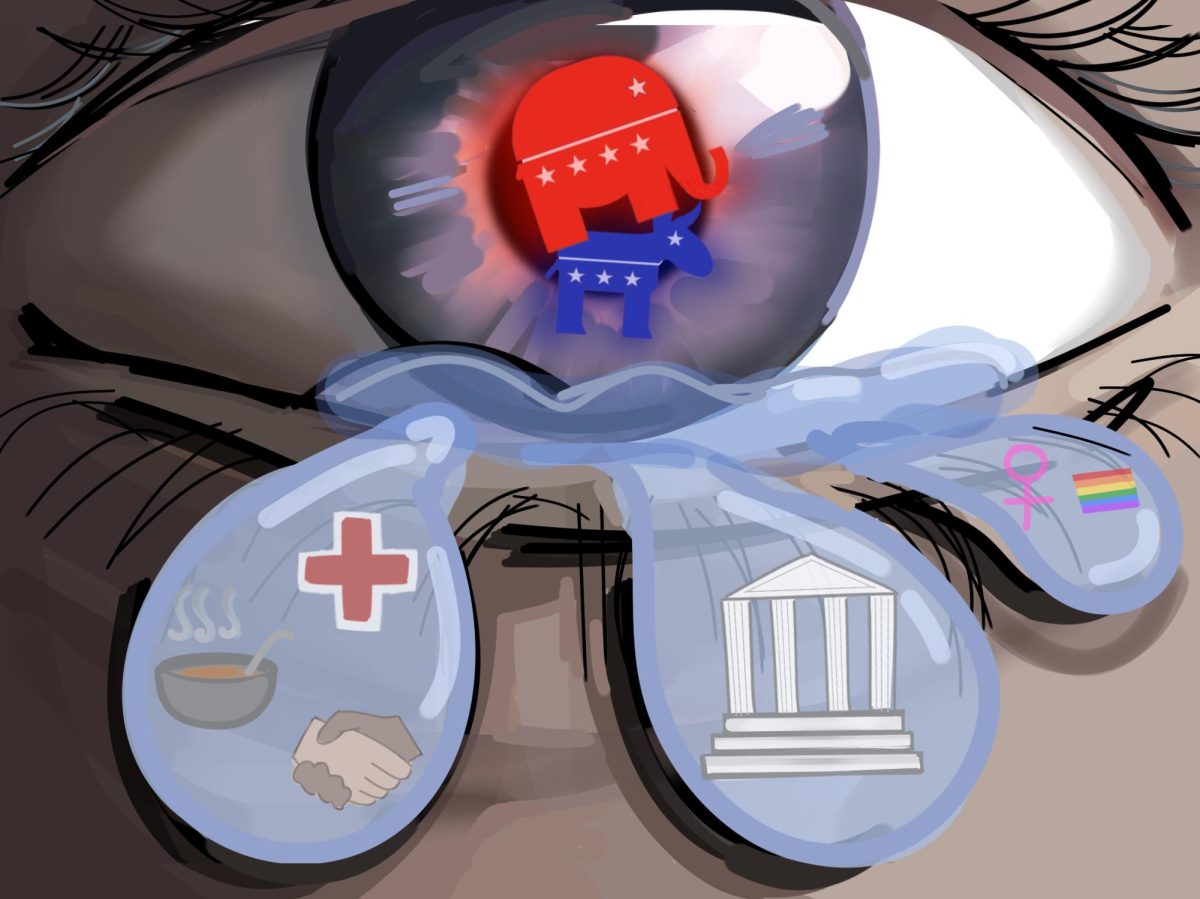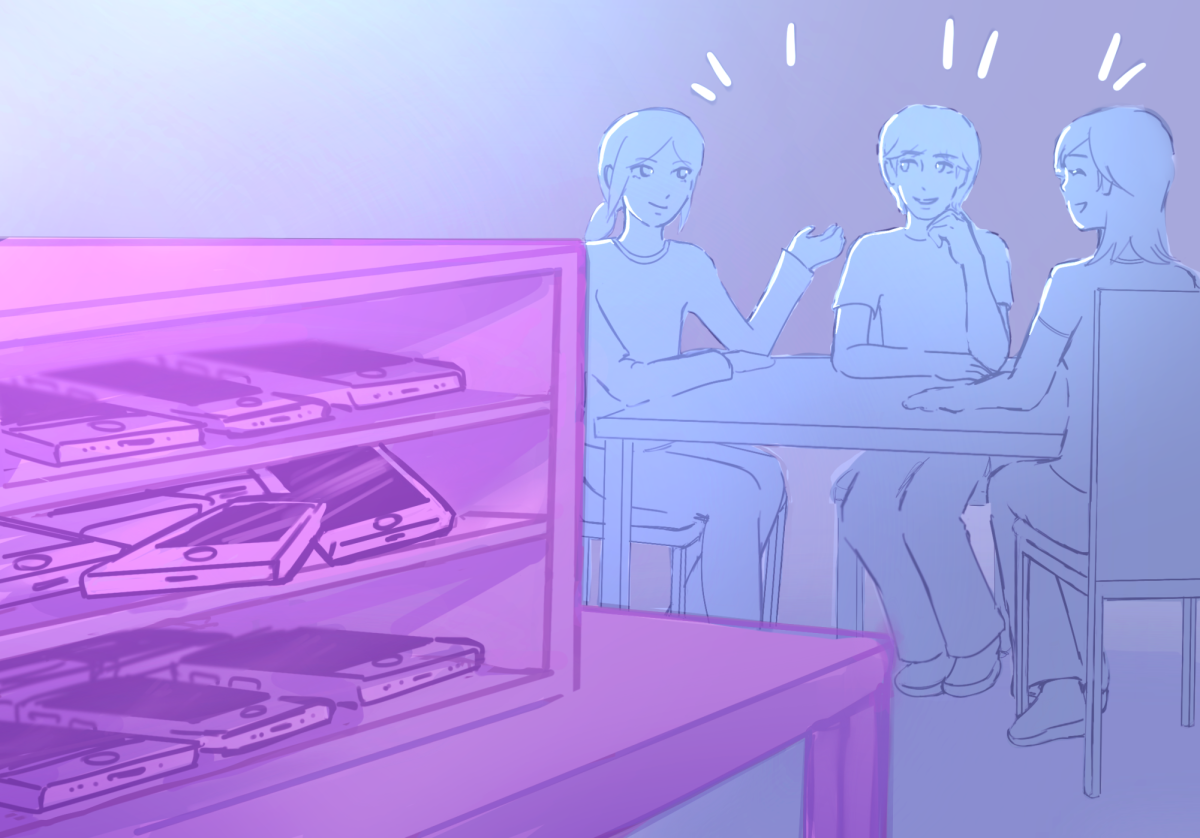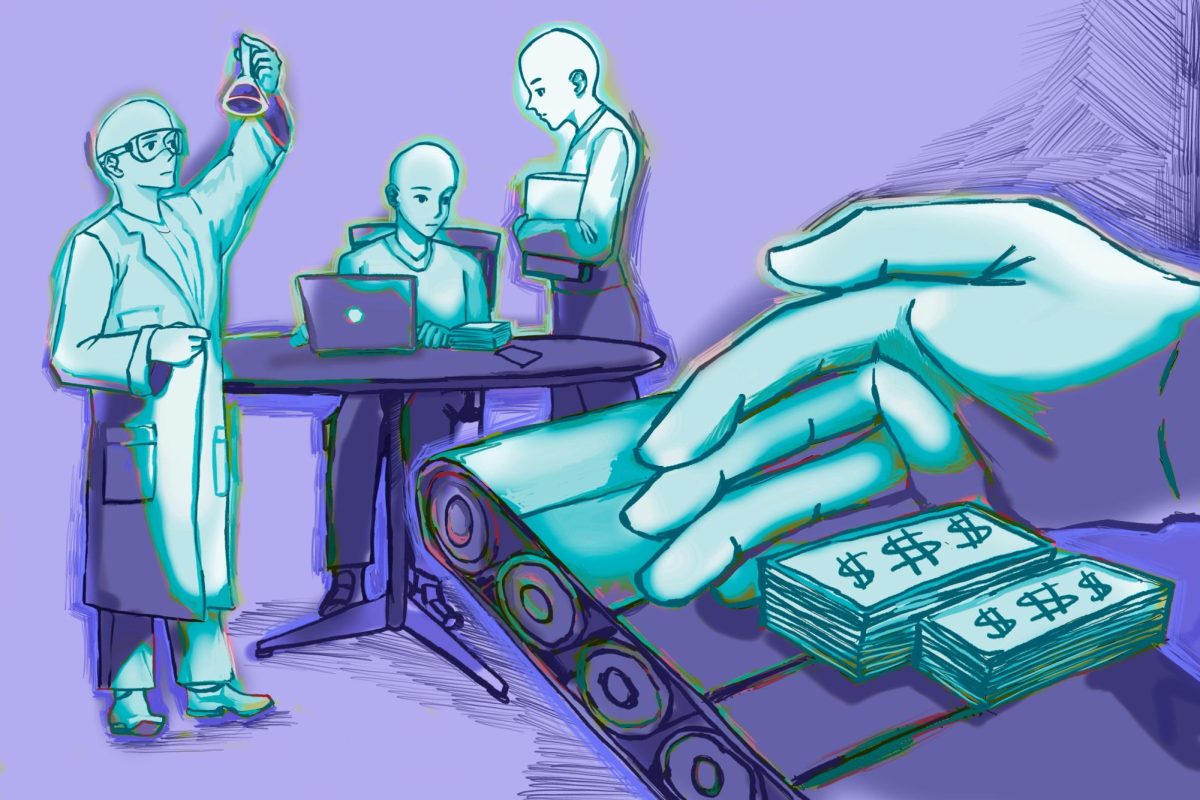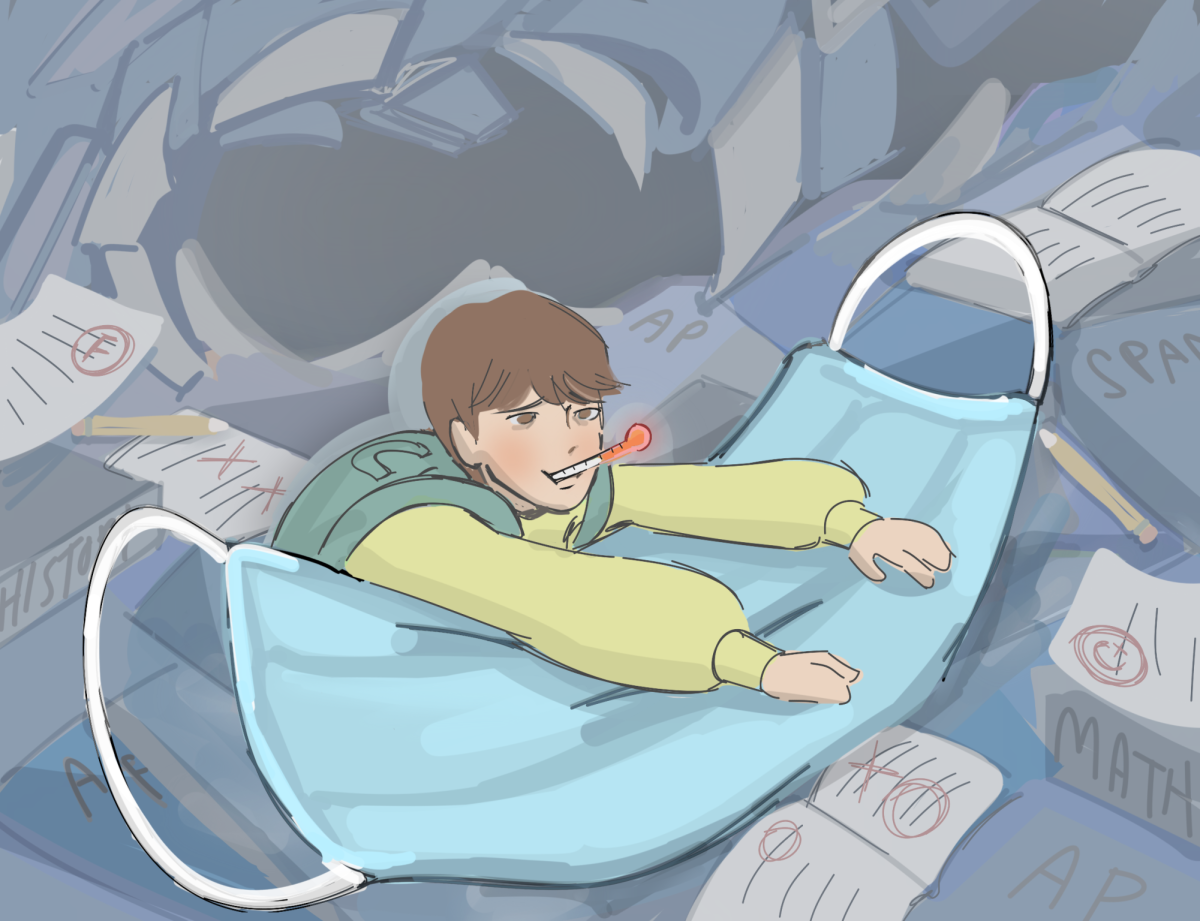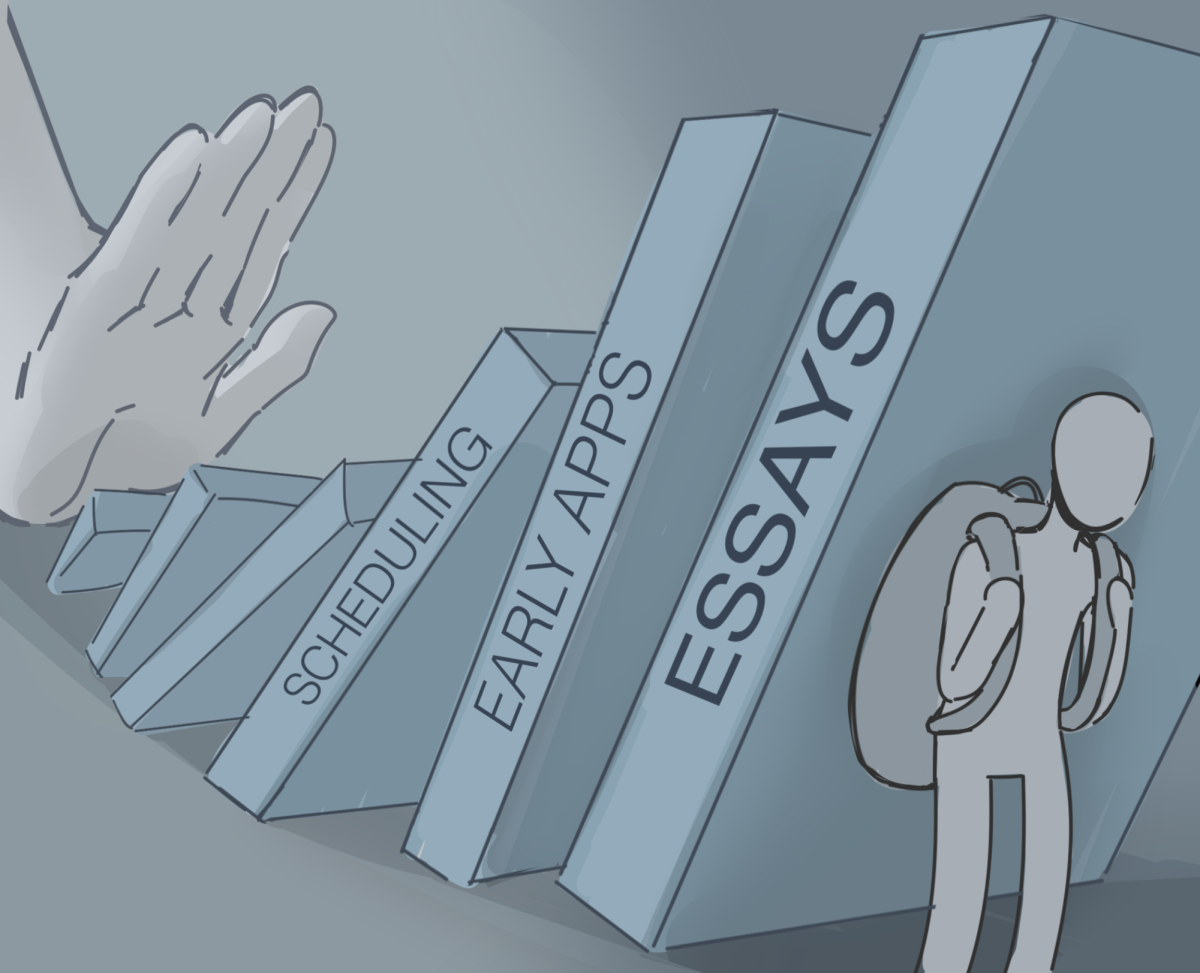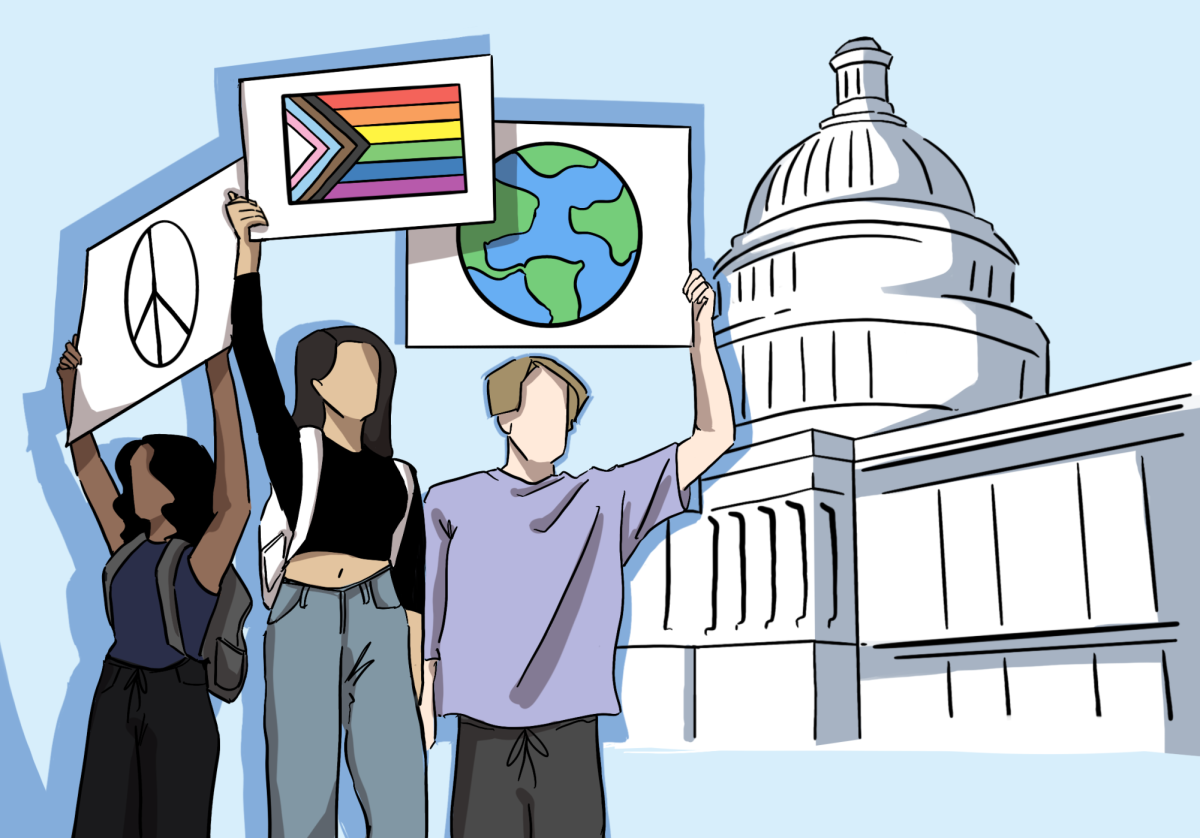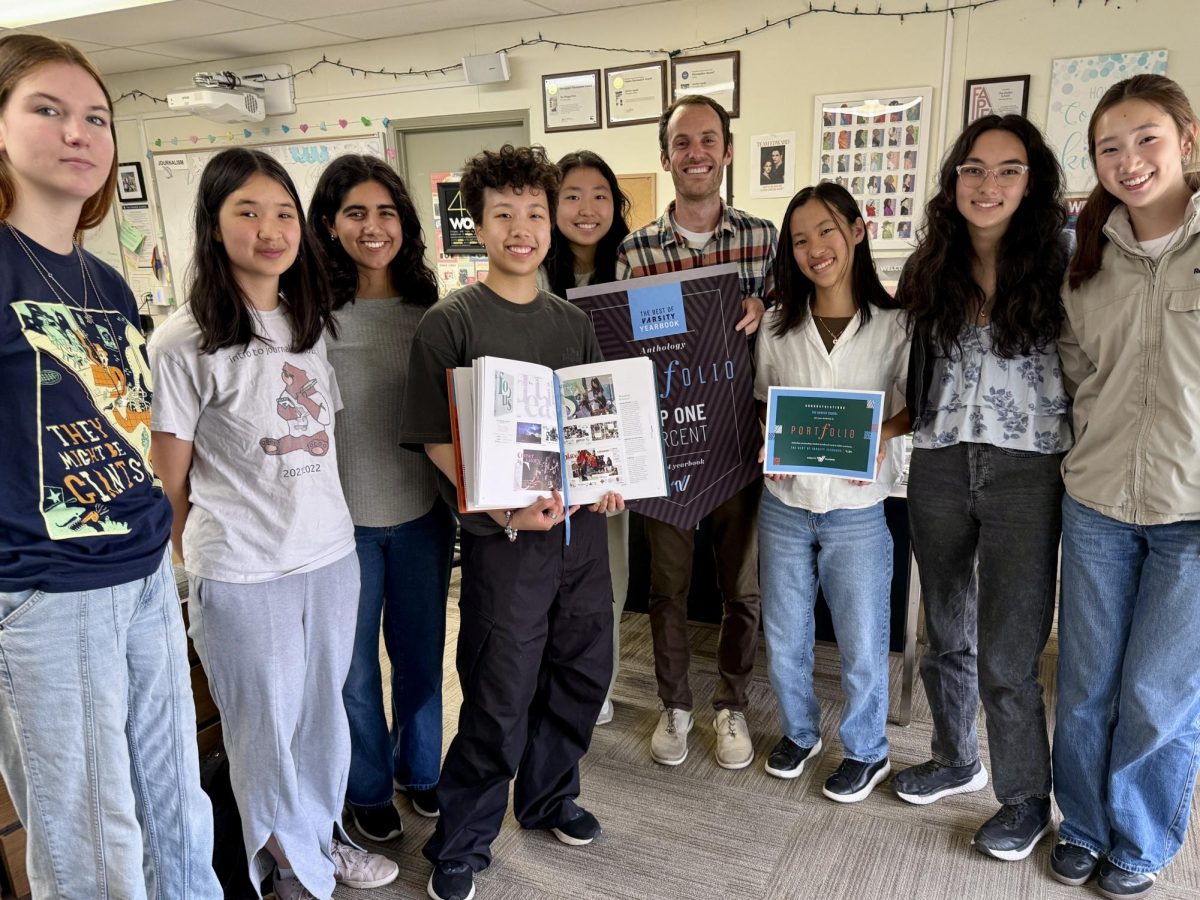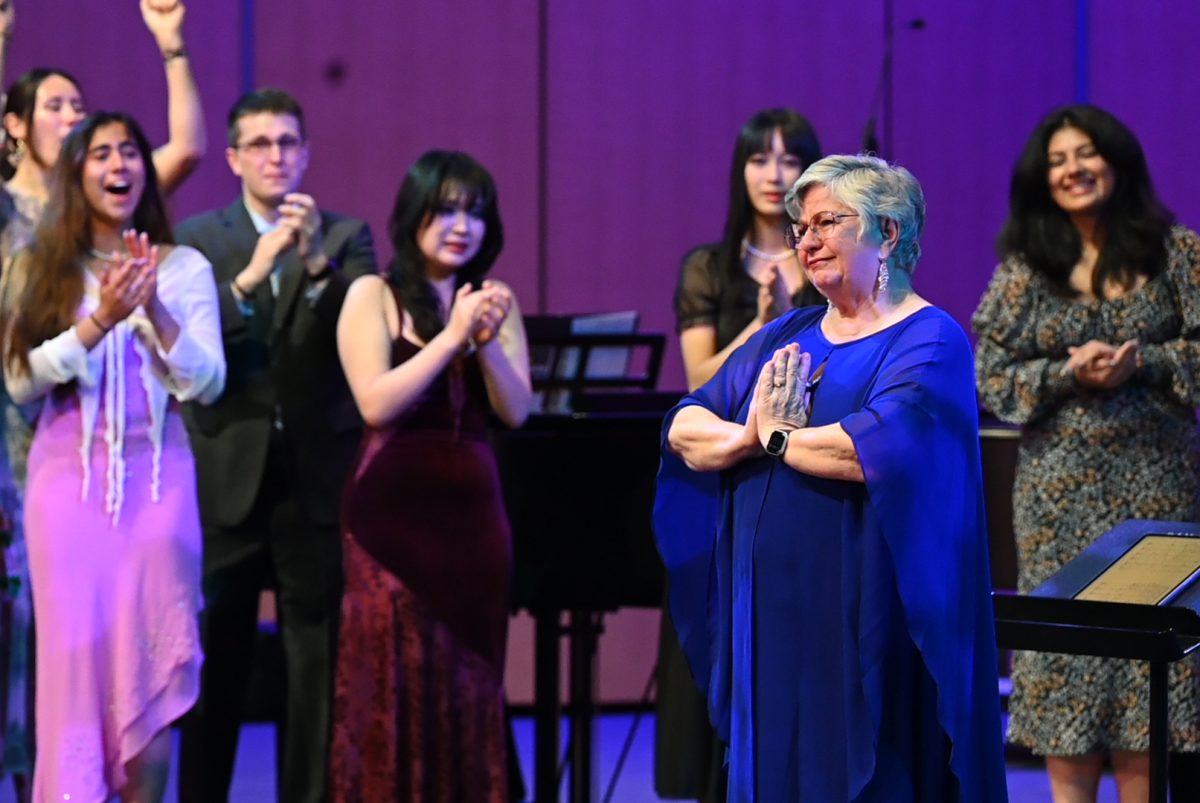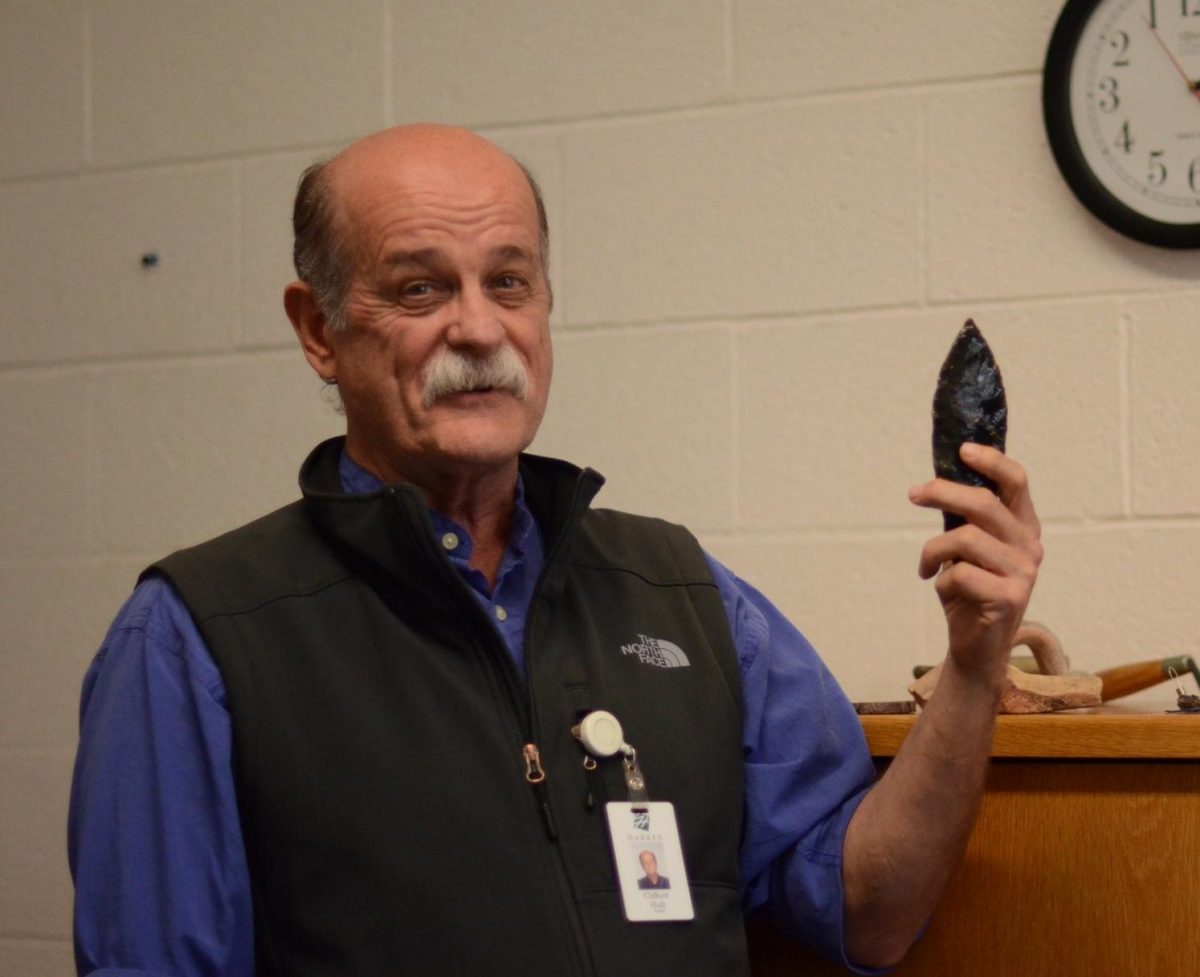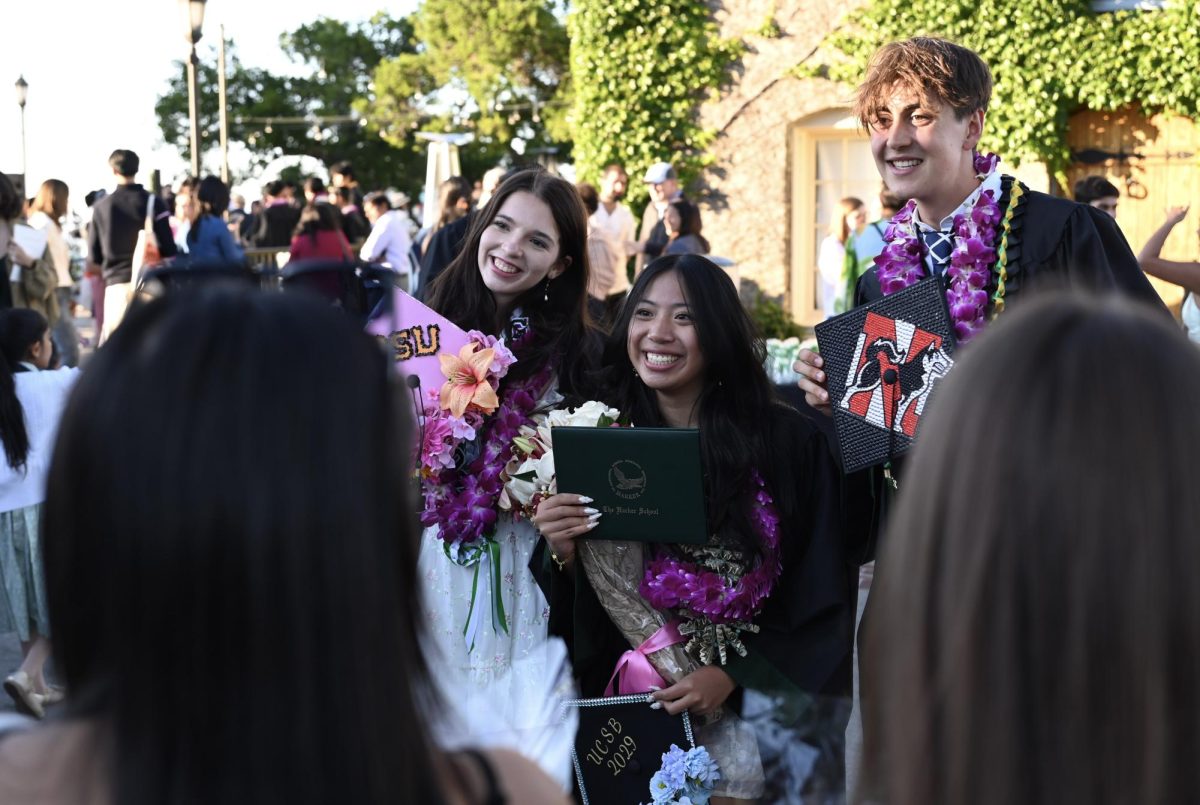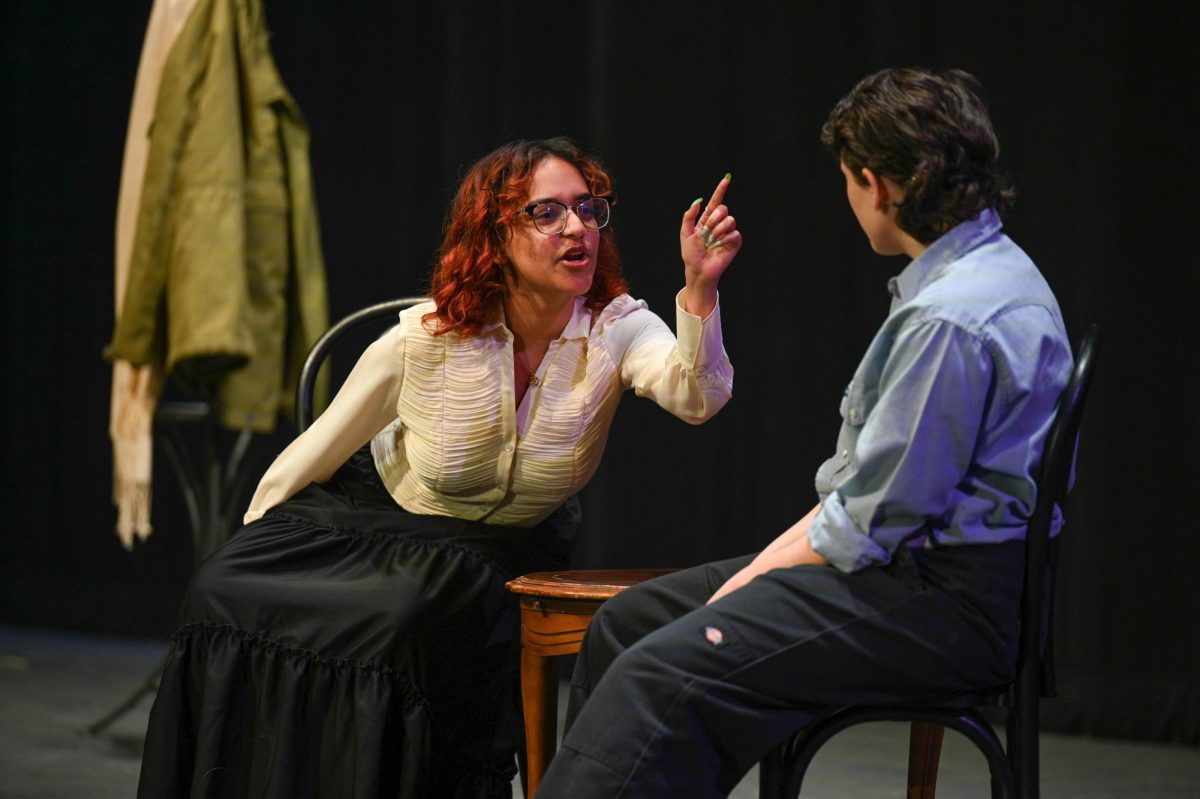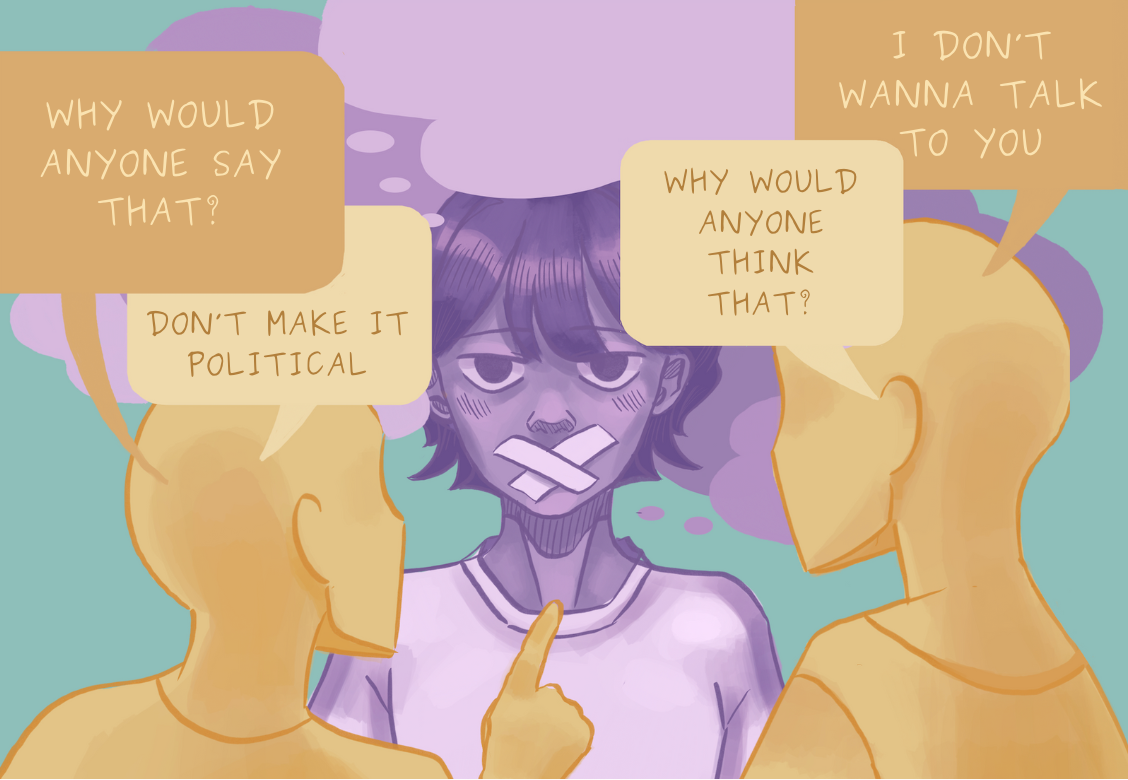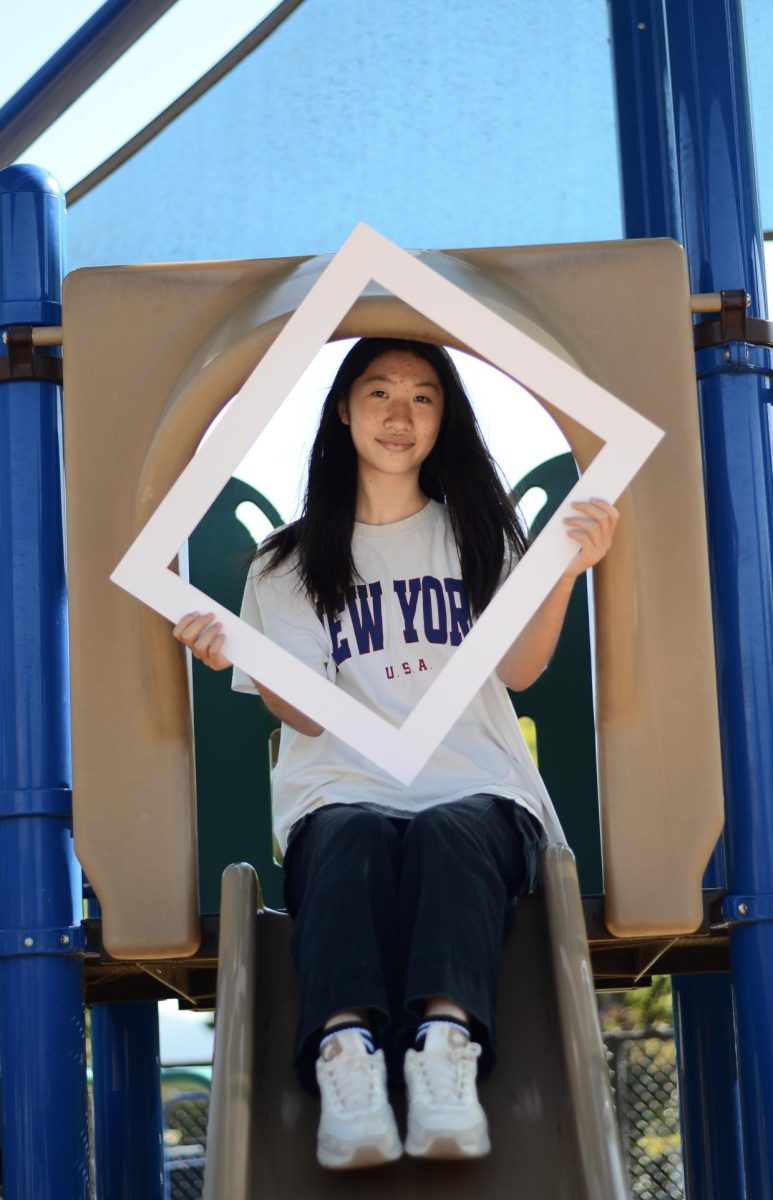For the past year, the presidential election embedded itself into our daily lives. Whether scrolling through social media, chatting at dinner or debating during class discussions, political tensions rose as Nov. 5th approached.
Campaigns and media coverage painted an image of a country on the brink of economic, political and civil armageddon that depended on a particular ballot. Debate over individual liberties, from abortion access to LGBTQ+ rights and national issues, from immigration to inflation, intensified on both state and national levels. More than anything, this election cycle highlighted the distrust in democracy widespread throughout the nation.
The 2024 election is over. Regardless of personal views on the results, it’s difficult to walk away with confidence in our ability to ground ourselves in policy and connect with each other.
Although elections might generate the most buzz and attention, it is important to remember that they are not the end-all-be-all of our future. The presidential election will not affect our daily lives as much as local policy decisions and community members.
When we come to understand issues and people through the news and social media, it is easy to feel frustrated and powerless. Negative partisanship, or content promoting ‘out-party’ hate over ‘in-party’ love, promises more clicks and engagement but also exaggerates a sense of distance and polarization within the population. Being an informed member of society cannot and should not stop at the digital screen.
We ultimately live with other people, not news segments or trending threads. Whether at a club meeting, work or community event, find comfort in commonalities you share with others: beliefs, hobbies and anxieties alike. Not only will seeking positive discourse help calm your anxieties, but also discoursing with those outside of your bubble will help everyone become and operate better informed.
The issues we care about, like bodily rights, immigration and the economy, are not going to fade away with the end of November. Although the chance to vote for our representatives might have passed for now, every day is a chance to make your voice heard. Ultimately, the election does not represent the end of political engagement and community support.
There are opportunities at school like phone banking with Green Team or attending an affinity group meeting. Outside of school, we can show up at community forums like council meetings and town halls. Especially for the majority of the student body who cannot vote, it is important to take advantage of these opportunities that connect us to our representatives.
If you’re not comfortable putting yourself out there politically, you can still impact the community. Countless volunteering opportunities are available online or in Director of Community Service Kerry Enzensperger’s office for you to take action without necessarily being in the spotlight. Community is a two-way street: support only comes from showing up for and building trust in relationships with others.
The Bay Area, let alone the nation, is so much bigger than City Hall or your social media algorithm. Though elections serve as the foundation for our democracy, it is up to us to build upon them through political participation and community service. In order to improve our individual communities, it is essential that we connect and understand others in them beyond polarized and one-dimensional narratives.




![LALC Vice President of External Affairs Raeanne Li (11) explains the International Phonetic Alphabet to attendees. "We decided to have more fun topics this year instead of just talking about the same things every year so our older members can also [enjoy],” Raeanne said.](https://harkeraquila.com/wp-content/uploads/2025/10/DSC_4627-1200x795.jpg)


















![“[Building nerf blasters] became this outlet of creativity for me that hasn't been matched by anything else. The process [of] making a build complete to your desire is such a painstakingly difficult process, but I've had to learn from [the skills needed from] soldering to proper painting. There's so many different options for everything, if you think about it, it exists. The best part is [that] if it doesn't exist, you can build it yourself," Ishaan Parate said.](https://harkeraquila.com/wp-content/uploads/2022/08/DSC_8149-900x604.jpg)




![“When I came into high school, I was ready to be a follower. But DECA was a game changer for me. It helped me overcome my fear of public speaking, and it's played such a major role in who I've become today. To be able to successfully lead a chapter of 150 students, an officer team and be one of the upperclassmen I once really admired is something I'm [really] proud of,” Anvitha Tummala ('21) said.](https://harkeraquila.com/wp-content/uploads/2021/07/Screen-Shot-2021-07-25-at-9.50.05-AM-900x594.png)







![“I think getting up in the morning and having a sense of purpose [is exciting]. I think without a certain amount of drive, life is kind of obsolete and mundane, and I think having that every single day is what makes each day unique and kind of makes life exciting,” Neymika Jain (12) said.](https://harkeraquila.com/wp-content/uploads/2017/06/Screen-Shot-2017-06-03-at-4.54.16-PM.png)








![“My slogan is ‘slow feet, don’t eat, and I’m hungry.’ You need to run fast to get where you are–you aren't going to get those championships if you aren't fast,” Angel Cervantes (12) said. “I want to do well in school on my tests and in track and win championships for my team. I live by that, [and] I can do that anywhere: in the classroom or on the field.”](https://harkeraquila.com/wp-content/uploads/2018/06/DSC5146-900x601.jpg)
![“[Volleyball has] taught me how to fall correctly, and another thing it taught is that you don’t have to be the best at something to be good at it. If you just hit the ball in a smart way, then it still scores points and you’re good at it. You could be a background player and still make a much bigger impact on the team than you would think,” Anya Gert (’20) said.](https://harkeraquila.com/wp-content/uploads/2020/06/AnnaGert_JinTuan_HoHPhotoEdited-600x900.jpeg)

![“I'm not nearly there yet, but [my confidence has] definitely been getting better since I was pretty shy and timid coming into Harker my freshman year. I know that there's a lot of people that are really confident in what they do, and I really admire them. Everyone's so driven and that has really pushed me to kind of try to find my own place in high school and be more confident,” Alyssa Huang (’20) said.](https://harkeraquila.com/wp-content/uploads/2020/06/AlyssaHuang_EmilyChen_HoHPhoto-900x749.jpeg)



